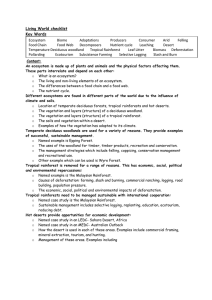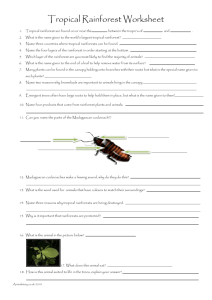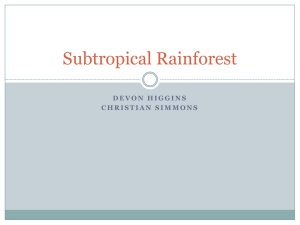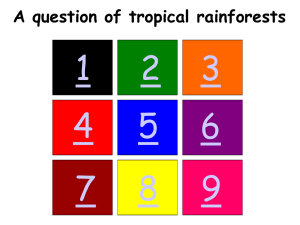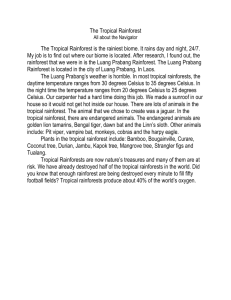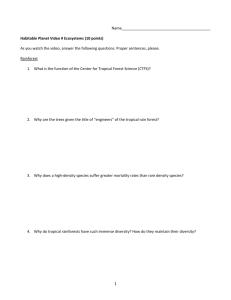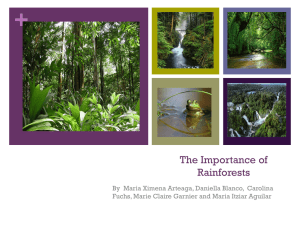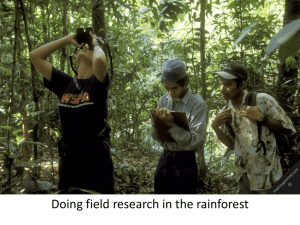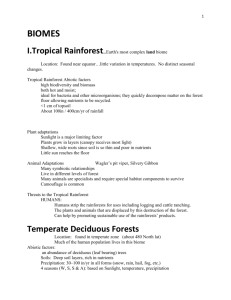Geography Revision for the Mock Exam 2015 part two
advertisement
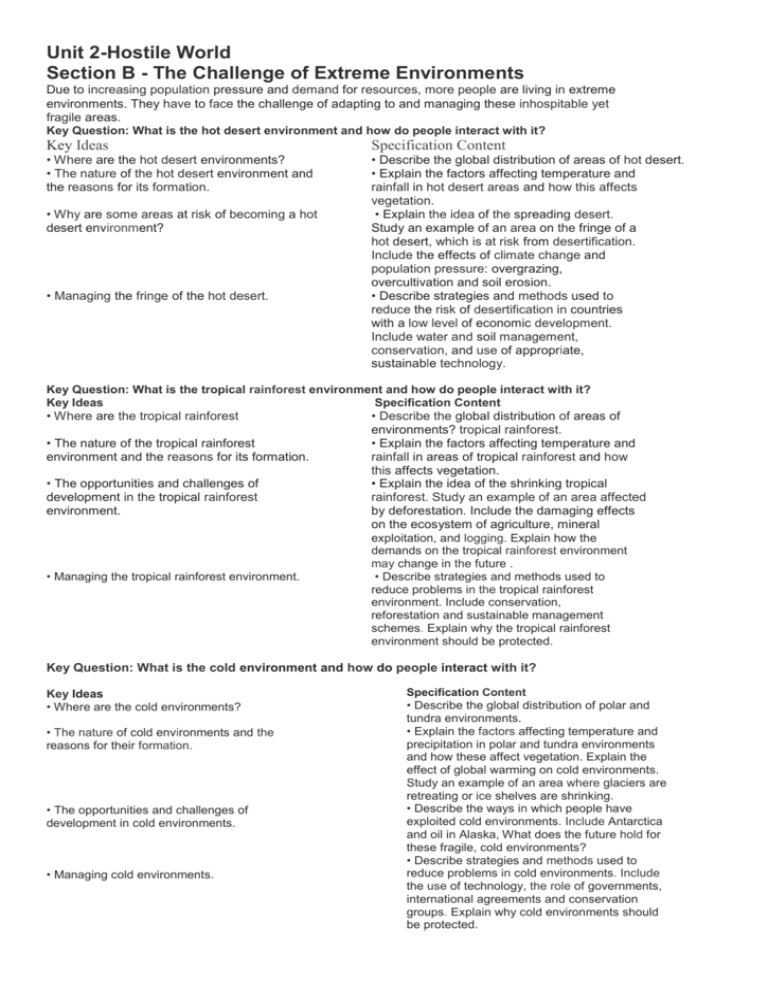
Unit 2-Hostile World Section B - The Challenge of Extreme Environments Due to increasing population pressure and demand for resources, more people are living in extreme environments. They have to face the challenge of adapting to and managing these inhospitable yet fragile areas. Key Question: What is the hot desert environment and how do people interact with it? Key Ideas Specification Content • Where are the hot desert environments? • The nature of the hot desert environment and the reasons for its formation. • Describe the global distribution of areas of hot desert. • Explain the factors affecting temperature and rainfall in hot desert areas and how this affects vegetation. • Explain the idea of the spreading desert. Study an example of an area on the fringe of a hot desert, which is at risk from desertification. Include the effects of climate change and population pressure: overgrazing, overcultivation and soil erosion. • Describe strategies and methods used to reduce the risk of desertification in countries with a low level of economic development. Include water and soil management, conservation, and use of appropriate, sustainable technology. • Why are some areas at risk of becoming a hot desert environment? • Managing the fringe of the hot desert. Key Question: What is the tropical rainforest environment and how do people interact with it? Key Ideas Specification Content • Where are the tropical rainforest • The nature of the tropical rainforest environment and the reasons for its formation. • The opportunities and challenges of development in the tropical rainforest environment. • Managing the tropical rainforest environment. • Describe the global distribution of areas of environments? tropical rainforest. • Explain the factors affecting temperature and rainfall in areas of tropical rainforest and how this affects vegetation. • Explain the idea of the shrinking tropical rainforest. Study an example of an area affected by deforestation. Include the damaging effects on the ecosystem of agriculture, mineral exploitation, and logging. Explain how the demands on the tropical rainforest environment may change in the future . • Describe strategies and methods used to reduce problems in the tropical rainforest environment. Include conservation, reforestation and sustainable management schemes. Explain why the tropical rainforest environment should be protected. Key Question: What is the cold environment and how do people interact with it? Key Ideas • Where are the cold environments? • The nature of cold environments and the reasons for their formation. • The opportunities and challenges of development in cold environments. • Managing cold environments. Specification Content • Describe the global distribution of polar and tundra environments. • Explain the factors affecting temperature and precipitation in polar and tundra environments and how these affect vegetation. Explain the effect of global warming on cold environments. Study an example of an area where glaciers are retreating or ice shelves are shrinking. • Describe the ways in which people have exploited cold environments. Include Antarctica and oil in Alaska, What does the future hold for these fragile, cold environments? • Describe strategies and methods used to reduce problems in cold environments. Include the use of technology, the role of governments, international agreements and conservation groups. Explain why cold environments should be protected.
